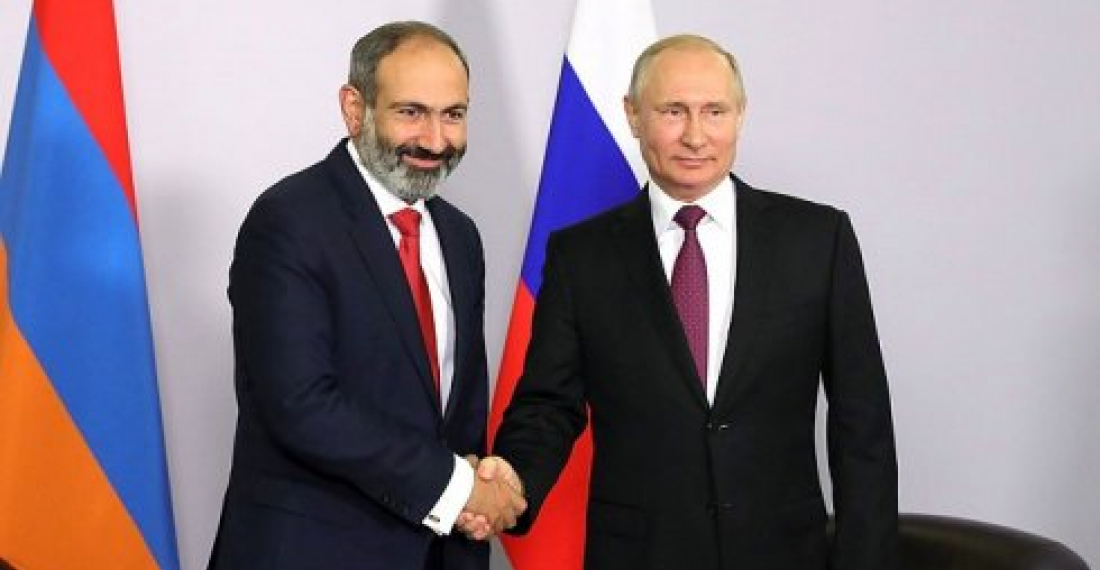Nikol Pashinyan the leader of Armenia's street protests movement, who a few days ago was catapulted to the post of the country's new prime minister on Monday had his first meeting with Russia's president Vladimir Putin. it was all smiles as the two leaders exchanged comments in front of the media, before retiring for private discussions
Putin welcomed his Armenian guest with warm words:
"Let me greet you and congratulate you once again - personally, on your election to the high office of the Chairman of the Government of Armenia.
At the beginning of our meeting, I would like to say that we are - and we all know it well - Armenia as our closest partner and ally in the region. This also applies to economic interaction, this concerns security issues.
You know that Russia remains the leading trade and economic partner of Armenia - it is more than 25 percent. Russian investments make up about 35 percent of all foreign investments in Armenia. We have recently seen an increase in turnover - also somewhere around 25 percent. And the supply of Armenian agricultural products to the Russian market is growing at an accelerating rate: 38 percent growth over the previous months.
In general, this is a very good dynamic, and I count on the fact that we will be able not only to preserve this, but also to multiply."
Pashinyan on his part was equally forthcoming,
"It is very pleasant that, just a few days after I was elected Prime Minister of Armenia, I have the opportunity to meet with you, because I think that there is something to discuss.
There is also something that does not need to be discussed: these are allied strategic relations between Armenia and Russia. In principle, I can assure you that there is consensus on this issue in Armenia, and nobody has ever put it, and I think that it will not question the strategic importance of the Armenian-Russian relations.
We are attuned and we have great energy to give a new impetus to our relations - both in the political and in the trade and economic sense. We hope to develop our relations in the military-technical sector and in other sectors.
Now a lot of tourists from Russia come to Armenia, it's very nice. I think that Armenia very much likes Russian tourists, and Armenians also like to see so many tourists in Yerevan.
I want to say that we highly appreciate the balanced position that Russia had in the course of our domestic political crisis, and I think that it was a very constructive position, it is highly appreciated not only by our Government, but in general in Armenian society."
A meeting of the heads of the countries members of the Eurasian Economic Union will take place in Sochi later today.
source: commonspace.eu with kremlin.ru
photo: President Putin of Russia and Prime Minister pashinyan of Armenia at their first meeting in Sochi on 14 May 2018 (picture courtesy of the press service of the president of the Russian Federation).






